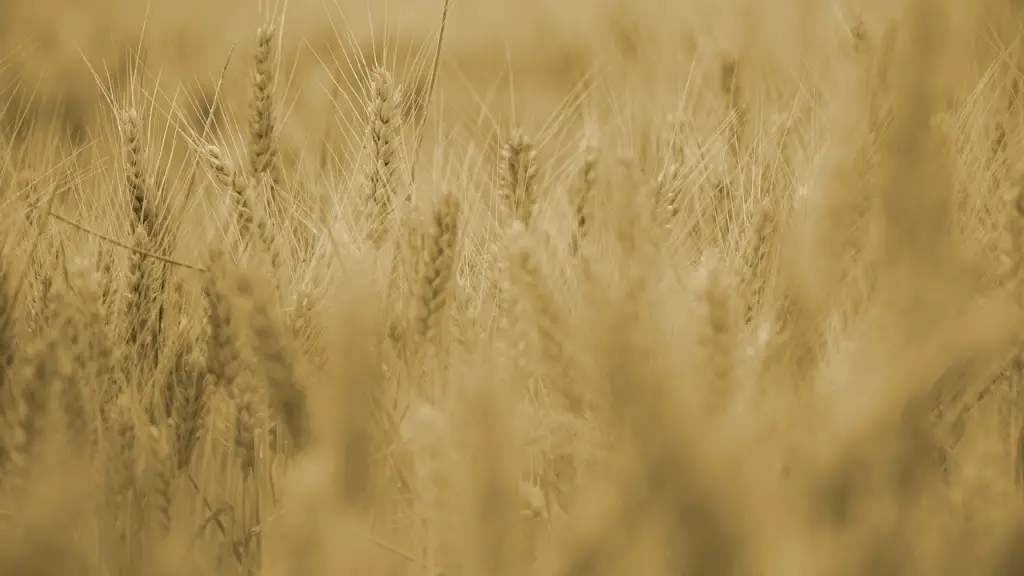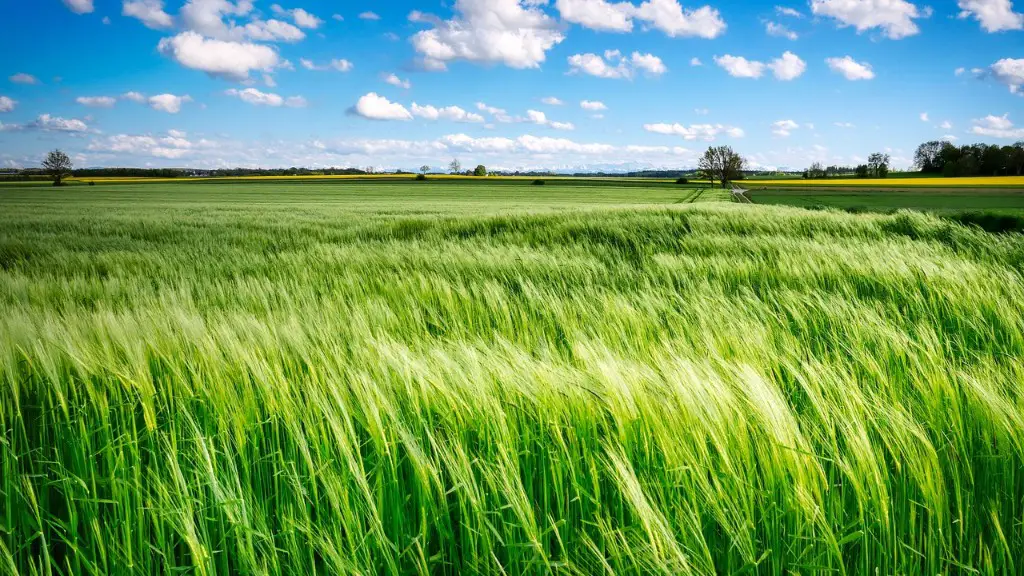The era that heralded the beginnings of agriculture is known as the Neolithic Revolution. This period began about 10,000-12,000 years ago and is sometimes referred to as the ‘New Stone Age’. It is during this period that some of the most fundamental changes in human history were made, leading to what is often termed as the foundation of modern civilization. Here, we will explore what made this period such a transformational part of history as well as what innovations and achievements were made.
Domestication of Plants and Animals
It was during the Neolithic Revolution that humans began to domesticate plants and animals. This breakthrough meant that, unlike our hunter-gatherer ancestors, they could rely on food sources more reliably. This, in turn, gave rise to the development of settlements, as humans no longer had to rove, but could now stay in one place and cultivate land for food.
Cereal Cultivation
The cultivation and domestication of cereals, wild grains, and fast-growing grasses, such as wheat, barley, and millet, became essential to the success of these early settlements. Cereal cultivation, combined with animal and insect husbandry, meant that a bountiful and varied diet could be provided to a growing and settled population.
Tools and Technology
The Neolithic Revolution also saw the development of a range of tools to help early farmers and their families. This included axes and stone tools that were used to help tame the land and build protective structures such as walls and dwellings. The invention of the wheel was also an important component of this era, as it helped humans to move heavy objects, so they could better explore and settle new parts of the world.
Arts and Crafts
Cave paintings, pottery, and stone sculptures were the first steps in what we now know as the art world. These early pieces of artwork are proof of the Neolithic man’s interest in depicting the world around them, and the skill level present in the pieces still astounds modern viewers. This era of art was not just limited to sketching and pottery design, with early Neolithic craftsmen creating jewelry and clothing from animal hides.
Trade and Commerce
The Neolithic Revolution also saw the beginnings of trade and commerce. This was made possible by the development of transportation tools, such as the wheel, and the need for the exchange of goods and materials that were not locally available. This cross-cultural exchange was an important part of human evolution, as it fostered the expansion of language, literature, and knowledge.
Impact on Human Civilization
The Neolithic Revolution was the spark that ignited the fire of modern civilization. Through the domesticating of plants and animals, the cultivation of cereals, the advancement in tools and technology, the development of arts and crafts, and the birth of trade and commerce, humanity was able to achieve unprecedented successes and progress.
The Transition Towards Modern Generalizations
The Neolithic Revolution opened the door to many of the core concepts of what we now recognize as established civilization and culture. This includes topics such as social hierarchies, politics, societal institutions, and moral and ethical values. Through the maturation of these principles, humanity was able to move beyond its primitive past and embrace the realization of a much more advanced future.
Societal Structures and Political Thinking
The effects of the Neolithic Revolution on mankind were far-reaching and led to some of the most profound impacts in human history. From the development of social structures and responsibilities within families and communities, to the creation of political systems and representatives, the understandings and practices gained during this era ushered in the thoughts and ideologies we know today.
New Innovations and Discoveries
The Neolithic Revolution was a time of great innovation. From the invention of the wheel- which laid the foundations for transport- to the establishment of the world’s oldest calendar, the era of the Revolution saw some of mankind’s most impressive feats of progress. Even more remarkable, however, is that many of these discoveries are still relevant today and continue to shape the progress of human affairs.
Social Discourse and Philosophy
The development of social discourse is one of the core concepts to come out of the Neolithic Revolution. During this period, tribal beliefs and practices were slowly replaced by shared social standards and philosophical musings on the nature of the universe and humanity itself. This was a progressive shift that laid the foundation for our modern day understandings and beliefs.
Religious Practices and Beliefs
Religion was an integral part of the Neolithic Revolution. Through prayer and ritual, early humans sought to find meaning and solace in a rapidly changing world, often perceiving divine intervention in their lives. This spiritualism was a crucial element of life for many tribes, with religious practices still in place today.



